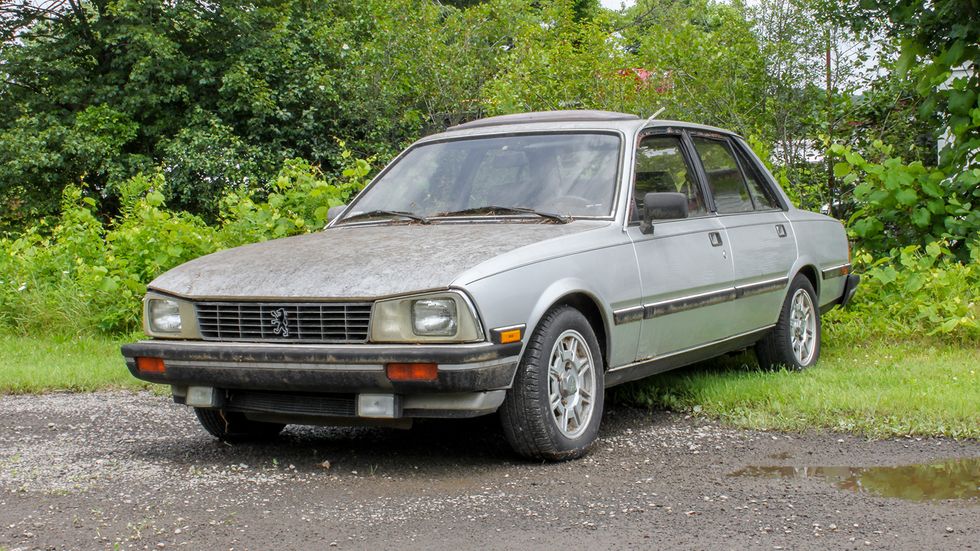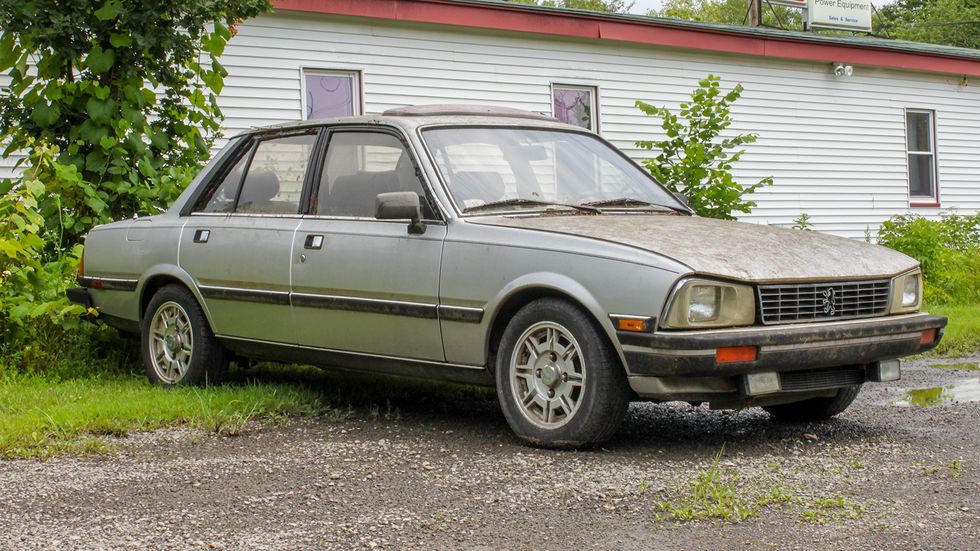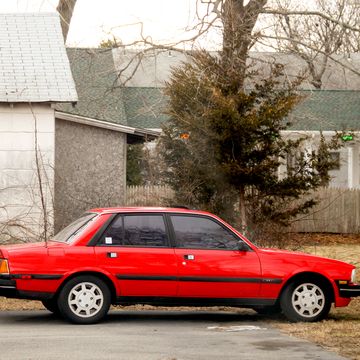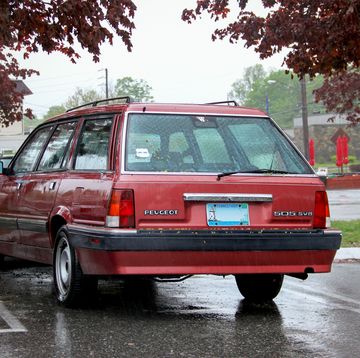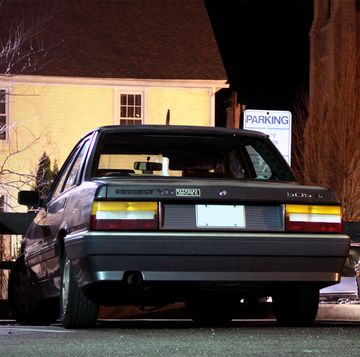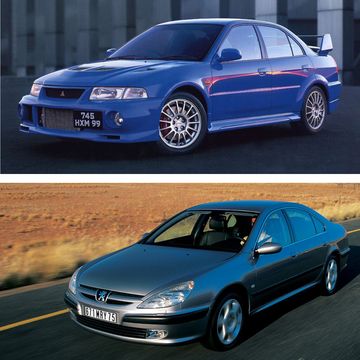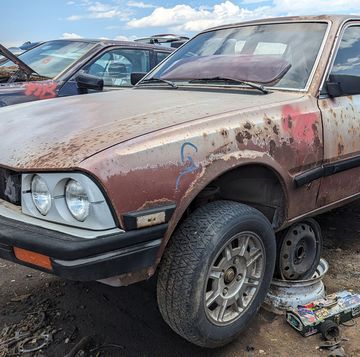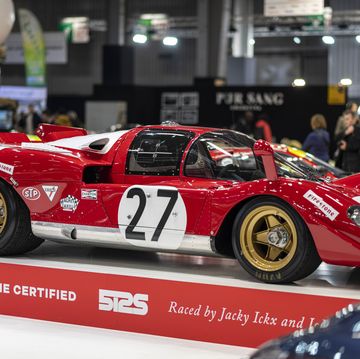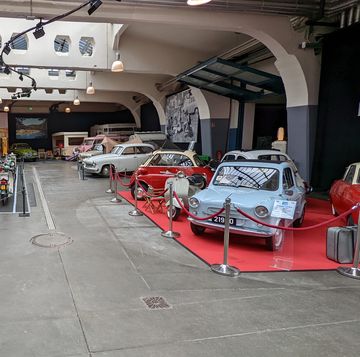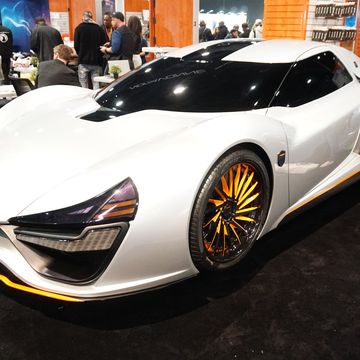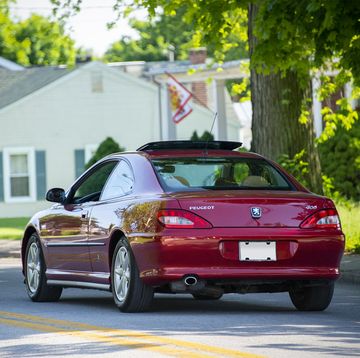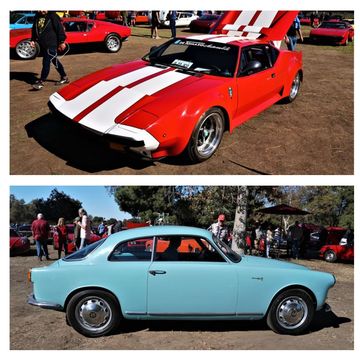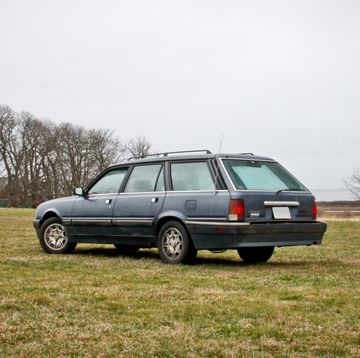Spotting any Peugeot 505 is tough enough these days, but this version is far rarer than the sedans and wagons we usually see at car shows. That's because remaining examples tend to be the range-topping V6 gasoline models with all the trimmings, not the economical diesel-flavored versions.
The 1980s are remembered as the decade of luxury and excess when it comes to cars, especially foreign ones, but prosperous, Ferris Bueller '80s suburbia we picture was really just the second half of the decade. The first half, rarely remembered in a negative light these days thanks to the rose-colored glasses of nostalgia, were still the dark days of malaise with pricey gasoline, engine downsizing, emissions-choked muscle cars making under 200 hp, repeated facelifts of the Chevette and unfortunate domestic experiments with diesels. One of the few foreign cars that emerged from the last big era of diesel with its reputation improved was the immortal W123-generation Mercedes-Benz, mostly because those cars have in fact proved to be indestructible, even if never really in a hurry to pick up speed.
But a far larger number of European automakers fielded diesels in those years, including Peugeot and Volvo, mostly because they had been offering them for years in Europe and other regions.
Diesel was still the ticket when the 505 arrived in the early 1980s to pick up the baton from the 504, which had been a popular model in diesel flavor for the French automaker. Sales of the 504 and the 505 overlapped for a few years -- New York City even experimented with 504 diesels as taxis in those days -- but the roomier and more modern 505 quickly started to dominate sales even as Peugeot tried its luck with the pricier 604. For the Peugeot 505, the era of diesel also overlapped with the era of round sealed-beam headlights -- these would be dropped after the first few years in favor of slightly more aesthetic rectangular units such as the ones this sedan is wearing. And that means this sedan was made between 1983 and 1986, when diesel 505s left the lineup.
The 2.3-liter inline-four turbo-diesel produced 80 hp but 136 lb-ft of torque thanks to a Garrett turbocharger, paired with a choice of a five-speed manual or a three-speed automatic.
"There is no need for any special turbocharger maintenance," Peugeot brochure copy of the time promised. "Because it's basically a diesel the 505 needs no expensive tune-ups or special service checks. In fact, the engine is relatively simple. There is no cold start problem. Your 505 starts within seven seconds by rapid glow plugs."
Seven-second starts seem more than a little quaint now, and the engine may have been relatively simple, but by 1985, diesel Peugeot sales almost evaporated -- gas was cheap again, and Peugeot buyers headed for the V6 models.
"And like any good diesel, the turbodiesel is built to last," Peugeot added. "10, 15 years or more. The cylinder heads have been strengthened to minimize maintenance. The cylinder block itself is high tensile. Head gaskets have improved sealing properties. Connecting rods have been enlarged and strengthened. The complete cooling and lubrication systems were redesigned for increased engine durability."
The engines may have been built to last 10 or 15 years, but after Peugeot packed up and left in 1992, it became difficult to keep diesel or gas-engined 505s on the road, outside of traditional import strongholds. The diesel models by then were almost a decade old, but market factors and ease of finding service rather than engine longevity dictated how long these cars stayed on the road.
In 2019, it seems like only a couple out of every 50 examples of the 505 in running condition are diesels, if our experience is any indication, because a lot of these cars perished in the early 1990s.

Jay Ramey grew up around very strange European cars, and instead of seeking out something reliable and comfortable for his own personal use he has been drawn to the more adventurous side of the dependability spectrum. Despite being followed around by French cars for the past decade, he has somehow been able to avoid Citroën ownership, judging them too commonplace, and is currently looking at cars from the former Czechoslovakia. Jay has been with Autoweek since 2013.
